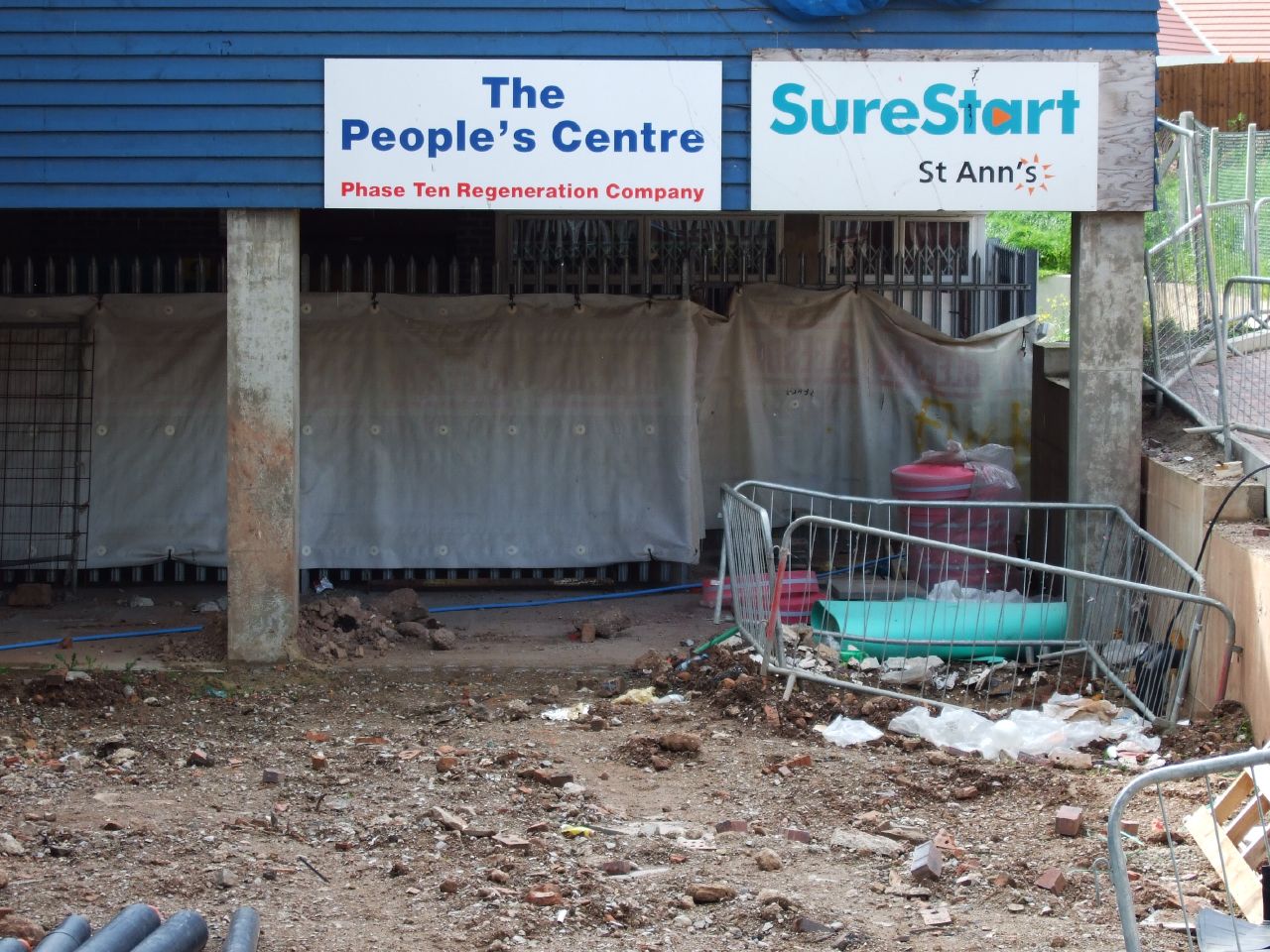Closing the gap
The 25th anniversary of Sure Start reminds us that good public services change lives, writes Ben Cooper
In the United Kingdom today, at least one million babies and toddlers live in poverty. Parents struggle to afford daily essential purchases such as nappies and formula milk. Finding the money for larger items, such as buggies, can plunge a family into debt and crisis.
What happens to someone when they are a baby or toddler often defines their entire future. There is a clear link to between a lack of income during childhood and lower educational attainment, physical health, emotional development, and wellbeing. In 2022, just 48 per cent of pupils eligible for free school meals in England reached a good level of development at the end of reception – compared to 69 per cent of their better off peers. Even starker, someone born today in the most deprived areas of our country can expect to spend around 19 fewer years in good health than someone born in the most affluent – and will lead, on average, a shorter life overall.
The best antidote to poverty is to provide families with more money directly through the social security system. But good public services can also make a big difference. For example, Hackney and Newham have been able to almost close the educational attainment gap between those on free school meals and their peers by, among other things, maintaining substantial investment in children’s centres and providing free meals to all nursery children. The evidence is clear: investment in high-quality, accessible, and well-funded services for parents, babies, and toddlers can tackle inequalities and help every child to grow up happy, healthy and successful.
We need only look to the last Labour government for proof of this, as the 25th anniversary of Sure Start should remind us. Announced by David Blunkett in June 1998, Sure Start sought to provide “comprehensive support for pre-school children who face the greatest disadvantage”, including childcare, family support, education, and healthcare.
An offer to every child and young person under the age of 19 and their families risks crowding out support and funding for our youngest, poorest children
This one-stop shop for families with under-fives worked. The Institute for Fiscal Studies found Sure Start reduced hospitalisations, supported safer home environments, and tackled behavioural problems. For young people in disadvantaged areas, the largest benefits, such as improved health and wellbeing, were often only felt in adolescence – demonstrating that the real success of tackling poverty’s impact in the early years is realised as people grow up.
Some 13 years of Conservative-led governments have seen a very different approach to early years policy.
Most obviously, austerity has been catastrophic for early years services. In government, the Conservatives and Liberal Democrats essentially dismantled Sure Start. They forced 1,000 centres across England to close, while services in the remaining centres were dramatically reduced. This hurt families in poorer places more than those in richer ones. Spending per young person on Sure Start and children’s services fell significantly in the most deprived councils between 2010–11 and 2020–21, while it rose in the least deprived ones.
Compounding the problem, the services that remain have moved away from supporting families with babies and toddlers. Recently, the government announced £300m to invest in family hubs, delivering an array of services for families with children from conception to age 19 (or to 25 in the case of those with disabled children). While this may sound positive, it introduces major problems. An offer to every child and young person under the age of 19 and their families risks crowding out support and funding for our youngest, poorest children. We cannot expect family hubs to dedicate as much time, space or resources to early years services or tackling the impact of child poverty. Many communities will actually see their Sure Start centre replaced, and so will lose the only public service for under-fives and their families.
The demise of Sure Start under the coalition government demonstrated that whatever Labour does build in the future must have stronger foundations
This forms part of a broader pattern: under the Tories, even those interventions that in principle should contribute towards a fairer society have tended to widen inequality. Government-funded childcare, for example, can be a powerful tool to tackle inequalities before a child starts school by improving educational attainment and development. But the evidence suggests that the current model has actually widened educational inequalities. This is because more childcare funding goes to policies that benefit higher income families (31 per cent) than is spent explicitly on supporting low-income families (20 per cent). Things are likely to get worse with the recent proposed expansion of free hours for families: just 20 per cent of households earning less than £20,000 will benefit, compared to 80 per cent of those earning more than £45,000.
Labour should prioritise services for the one million babies and toddlers that grow up in poverty. Just as the party is seeking to learn from best practice around the world on childcare, it should look to centre-left politicians globally who have prioritised tackling child poverty and its devastating impact.
Following the 2017 election in New Zealand, the issue was seen as so politically important that Jacinda Ardern created a new minister for child poverty reduction – and then assigned herself to the brief. Her government then delivered a substantial boost to childcare and early health services. In the US, Joe Biden has pushed for significant investment in early years services throughout his presidency, securing over $40bn additional investment for childcare, Head Start (the American equivalent of Sure Start), and early childhood home visits in the American Rescue Plan Act 2021. In Spain, the socialist prime minister, Pedro Sanchez, described tackling child poverty as ‘an absolute priority’ and in March 2023 announced almost €200m extra to support disadvantaged families to access early years services.
Labour must draw on these examples to build a credible plan to tackle child poverty and its devastating impact that can be launched on day one of a new government. However, while Labour members are rightly proud of Sure Start, we should not seek merely to roll back the clock. There are numerous challenges facing young children, their parents and families that were unimaginable 25 years ago. We now know a lot more about what works and what doesn’t, and we have a greater understanding of the services that families need than we did in the past. In any case, tight fiscal constraints means an immediate return to the scale of early years’ investment when Labour left office in 2010 is impossible. A difficult financial climate requires maximising the benefit of every pound spent, which in turn requires targeting public spending towards babies and toddlers living in poverty and the most disadvantaged areas first. Labour’s existing commitment to overhauling childcare is important, but it is simply not enough.
Rather than tearing down the piecemeal infrastructure of family hubs once in government, Labour should transform it into a dedicated early years service. Reforming who Family Hubs are for, and the support they provide, will be much easier than starting from scratch. The most significant change would be a specific focus on early years: family hubs should not aim to support every young person up to the age of 19, many of whom would be better supported through schools, colleges and youth provision. Instead, it should seek to support every family from conception to age five. A comprehensive and non-stigmatising service, with an open door for all families, is the best way to reach the most disadvantaged and those who need the most help. And this service needs to be resilient. The demise of Sure Start under the coalition government demonstrated that whatever Labour does build in the future must have stronger foundations and be more difficult to dismantle by future Conservative administrations.
Investing in early years services is a key part of any strategy for sound public finances
A Labour government should establish a national entitlement to early years services, combining universal help, targeted interventions, and integrated services. This entitlement should be co-produced with families who will use services, and could include access to baby and parental mental and physical health services, parenting support programmes, childcare, and help on the home learning environment. There should be an emphasis on peer-topeer support that encourages parents, grandparents, and carers to provide mutual help and advice to new parents. Such a national entitlement cannot be delivered from Westminster alone. Communities have different needs, and delivery of the national offer will need to accommodate them. Local councils should therefore lead and shape this service to meet those needs, working with local families and other organisations to do so.
There is no avoiding it: this service will cost money. But investing in early years services is a key part of any strategy for sound public finances. The evidence suggests that such investment saves public services money slightly in the short term, and more significantly over the longer term, as the next generation grows up and have children themselves.
If Labour is not able to provide all the resources it wants to in year one, it could start with the most disadvantaged communities. Indeed, Sure Start was rolled out in phases: first in 60 areas in 1999, in 250 by 2002, and eventually reaching more than 3,600 centres by 2010 as more funding was unlocked.
As Labour looks towards government, it must prepare serious solutions to poverty for the under-fives and their families. The 25th anniversary of Sure Start is a reminder that good public services change lives – and that there are one million babies and toddlers who urgently need a Labour government.
Image credit: Phil Wane via Flickr

